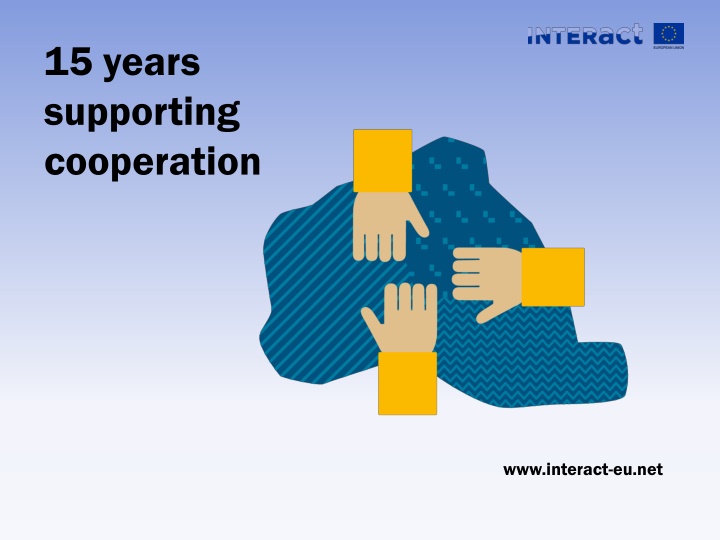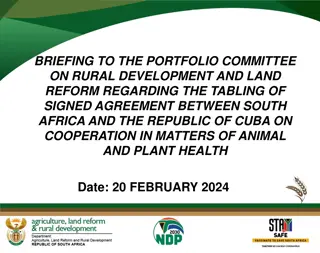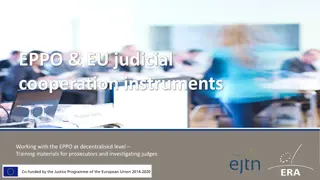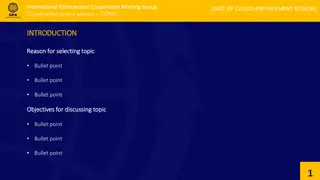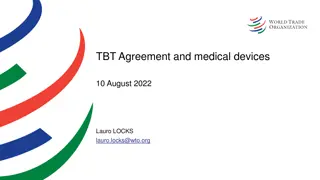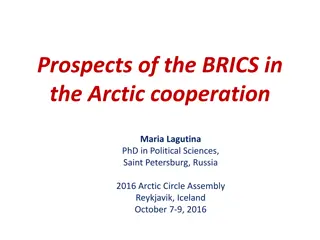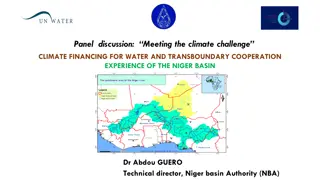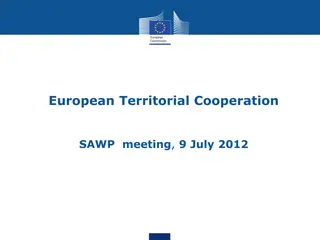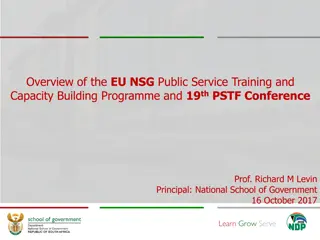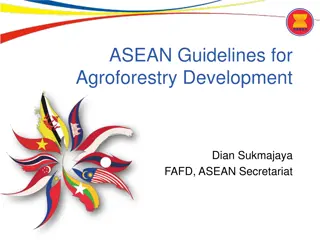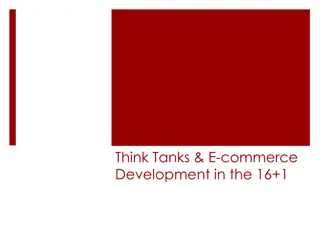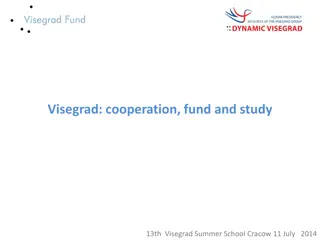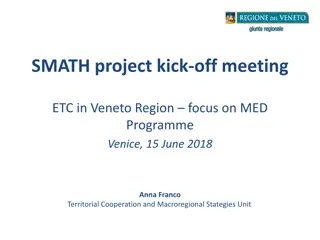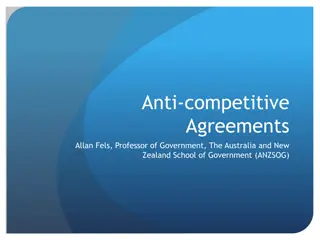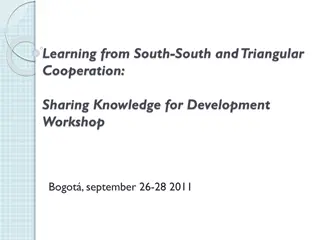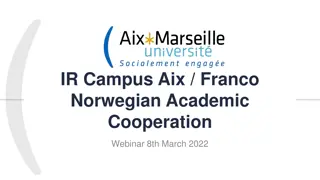Supporting Cooperation: Studies and Recommendations
Insights from studies conducted by Interact on macro-regional strategies and their role in project and policy development. Discover recommendations for incorporating macro-regional strategies in future legislation and improving stakeholder engagement and guidance for project applicants. Delve into the added value and potential of macro-regional strategies for driving change and enhancing project outcomes.
Uploaded on Mar 05, 2025 | 3 Views
Download Presentation

Please find below an Image/Link to download the presentation.
The content on the website is provided AS IS for your information and personal use only. It may not be sold, licensed, or shared on other websites without obtaining consent from the author.If you encounter any issues during the download, it is possible that the publisher has removed the file from their server.
You are allowed to download the files provided on this website for personal or commercial use, subject to the condition that they are used lawfully. All files are the property of their respective owners.
The content on the website is provided AS IS for your information and personal use only. It may not be sold, licensed, or shared on other websites without obtaining consent from the author.
E N D
Presentation Transcript
15 years supporting cooperation www.interact-eu.net
14 14TH GROUP MEETING GROUP MEETING THPA4 STEERING PA4 STEERING 16 October 2017 I Budapest J rg Mirtl, Interact programme
Three aspects 1. Results and recommendations from the studies conducted by Interact 2. Macro-regional strategies as learning platforms and tools for project and policy development 3. The role of Interact
Studies conducted by Interact Results and recommendations
Study Embedding Macro-regions Study on cooperation methods and tools in the Danube and Adriatic & Ionian Region Study conducted 2016-2017 Assessment of 23 programmes of different types in the Danube Region
Recommendations Include MRS in the future legislation of ESIF and beyond Better communication of MRS, involvement of stakeholders by the programmes Develop guidance for project applicants with MRS actors and programmes, collect practice Exchange of experience among programmes Development of programme-level monitoring of MRS (indicators) MC meetings should increasingly consider MRS, involve key implementers of MRS (Even as members? New regulations ESIF/ECCP) More fund-related networks in the 4 MRS! Exchange of experience on embedding among programmes
Study on added value of macro-regional strategies Conducted in 2016 and 2017
Study on Added value of macro-regional strategies Macro-regional strategies can be driving forces for change if the right momentum is achieved Macro-regional cooperation can occur independently of the macro-regional strategies Projects and programmes are usually not aware of the macro-regional strategies Better capitalisation of project results is the most tangible benefit macro- regional strategies bring to projects and programmes Macro-regional strategies offer a strategic framework for projects and programmes to define priorities Macro-regional strategies need to be positioned stronger in the territorial cooperation arena and beyond The future of the macro-regional strategies is a shared responsibility of all its key implementers
MRS project cycle Figure 1. Figure 1. Added values of macro-regional strategies throughout the project cycle
EU macro EU macro- -regional Strategies and experimentalist governance (EG) regional Strategies and experimentalist governance (EG) EUSBSR EUSBSR EUSDR EUSDR EUSAIR EUSAIR EUSALP EUSALP EG EG element element Framework goals Strategy & (rev.) Action Plan SEC(2009) 712, Strategy & Action Plan SEC(2010)1489 Strategy & Action Plan SWD(2014) 190 final Strategy & Action Plan with result/policy indicators & examples for indicators/units SWD(2015) 147 final RECURSIVE PROCESS RECURSIVE PROCESS RECURSIVE PROCESS RECURSIVE PROCESS Delegating to local units Nomination of PACs/HACs/NCs/SG Members Nomination of PACs/NCs/SG Members NCs, Pillar Coordinators, Governing Board, involvement of EP and EESC Thematic Action Groups and their Leaders, NCs; Executive Board & General Assembly Local units regularly reporting on their performance with agreed indicators/framew ork goals Report to the Commission Report to Danube Strategy Point/ Monitoring Reporting to Governing Board Reporting to Executive Board Revision of framework goals New Action Plan updated in 2013 and 2015, defining targets and indicators SEC(2009) 712/2 SWD(2015) 177 SWD(2017) 118 final New Action Plan under discussion N/A N/A RECURSIVE PROCESS (Commission Communications, Council Conclusions)
Interacts contribution to the advancement of MRS Cross-strategy thematic meetings (transport, climate, etc.) Exchange of the four transnational programmes supporting MRS Alignment of funding concept/Embedding Platform Communication of MRS Studies and collection of practices Cooperation with academia/civil society (research on MRS) Participation and suport to NC meetings, Annual Fora
Interact networks combining funds and programmes Capitalisation Networks Networks of Interreg & beyond Activities related to the interaction between Interreg, mainstream funds and funding outside the ESIF (Horizon, Life, Erasmus+, COSME, etc.) Inter-programme cooperation and coordination Future support for MA networks? Dealing i.a. with migration, social inclusion, climate, institutional capacity, transport, security Involving macro- regional strategies, mainstream funds are invited to participate
Cooperation works All materials about MRS are available on: http://www.interact-eu.net/library?field_fields_of_expertise_tid=33
